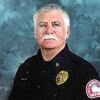One of the most important areas of personal development for any firefighter is participation in the after-action critique.
Regardless of the success or challenges encountered in an emergency, effectively illuminating its resolution is a giant step in advancing policy and procedures, training and education, and the real meaning of teamwork and collective accomplishment.
Exactly what you and your department determine is the best way to conduct such an analysis can mean the difference between a progressive, proactive experience and one that flounders in second-guesses and finger-pointing.
The following basic principles of a successful critique will go a long way to formulating a productive and successful process.
Incident debrief Mediator
Selecting the right facilitator for a critique is critical to its overall success. The person selected should be experienced, objective for the particular incident to be reviewed and democratic in their approach to discussion.
A good critique officer is one who can create the scene – weather, incident environment, equipment configuration and general assignments.
Whether on a screen or a white board, an organized narrator equipped with a site layout can go a long way in providing a foundation for effective discussion.
Ground rules
The stage should be set, whether in a standard operating procedure, a formal declaration of the ranking officer or by the facilitator at the time of the incident review.
A respect for rules, a sense of order and acknowledging appropriate behavior, combine to create a decorum that is essential to an effective review.
Expressed frustrations and even displays of anger are totally unacceptable during these critiques. Integrity of purpose should keep you on track – most of the time.
Analyze the emergency response Process, not people
The underlying principle for conducting a review is that it is all about the process and not about the people, with the exception of performance recognition.
The words used to discuss the incident can influence the quality of the process. When analyzing an incident, use terms like challenges instead of problems, lessons learned rather than mistakes made, and always remember that critique is not another word for criticism.
Instead of berating a crew for losing an exposure, a discussion of the challenges faced defending the adjacent building will lead to an open learning environment and further discussion. As a result, your training officer and possibly your SOP committee may revisit the concept of close-proximity exposure protection.
Improving firefighter safety
We obsess about every emergency response. It is in our nature. Second-guessing, what ifs and an eclectic group of theories permeate every back-bay and kitchen-table discussion for days after a high-energy incident response – and for good reason.
Learning from our experiences is a critical component to how firefighters make themselves, their teammates and their department better.
Taking this one step further requires that if you have something to say, you have an obligation to contribute in a critique.
Read more: 3 steps to prevent after-incident heart attacks
Firefighter’s role
As a firefighter adding to a critique, you must be aware of the format and speak when it is appropriate. Be objective and limit your point of view to what you know while acknowledging your biases.
Clarify misconceptions, describe changing environments and create a measurable view of the work that was accomplished. Explain what you experienced and how it added to or subtracted from the tactical objective you were assigned.
Asking about how your tactical involvement related to the overall strategy is a valid question.
Leadership’s responsibility
Officers, too, have a role in promoting an open atmosphere of acceptance and discussion during any critique. There are several questions officers must ask during an after-incident critique.
- Was the action plan followed and why or why not?
- Were there gaps in the tactics and did they affect the strategic progression of the response?
- Were there enough resources and were they the correct ones for the tasks?
- Could anything have been done differently?
- Was any action seen as unsafe?
- What have we learned and what needs to change?
Training opportunity
Not knowing something is not the crime, but not teaching what you know is. When it comes to training, patience and the Socratic method will advance the critique when appropriate and effectively allow lessons to be learned.
The rule here is to be careful not to get bogged down in teachable moments. The ultimate goal of a critique is to solicit feedback in a structured format for the purpose of advancing operational development.
It doesn’t matter whether you call it a post-incident analysis, an after-action review or simply a debriefing. The critique of any emergency response is a fundamental factor for promoting progress in your department.
The opportunity to discuss strategies and the real-life tactics used to advance them are vital to your organization’s moving forward.
Knowing that every participant, regardless of job or rank, has an equal chance to express their questions and concerns as well as their appreciation, generates an abiding trust in each other while directly enhancing the prospect for success on the next call.
Read next
Accepting failure or faking perfection? It’s time to be realistic about our success and failures
We must review our incidents with honesty or we’ll never be able to improve as a fire service
This article was orgininally posted Mar. 3, 2015, and has been updated with current information.














